Counterlife: Slavery after Resistance and Social Death
In Counterlife Christopher Freeburg poses a question to contemporary studies of slavery and its aftereffects: what if freedom, agency, and domination weren't the overarching terms used for thinking about Black life? In pursuit of this question, Freeburg submits that current scholarship is too preoccupied with demonstrating enslaved Africans' acts of political resistance, and instead he considers Black social life beyond such concepts. He examines a rich array of cultural texts that depict slavery—from works by Frederick Douglass, Radcliffe Bailey, and Edward Jones to spirituals, the television cartoon The Boondocks, and Quentin Tarantino's Django Unchained—to show how enslaved Africans created meaning through artistic creativity, religious practice, and historical awareness both separate from and alongside concerns about freedom. By arguing for the impossibility of tracing slave subjects solely through their pursuits of freedom, Freeburg reminds readers of the arresting power and beauty that the enigmas of Black social life contain.
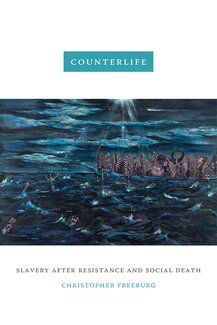
Global Middle East: Into the Twenty-First Century
Localities, countries, and regions develop through complex interactions with others. This striking volume highlights global interconnectedness seen through the prism of the Middle East, both “global-in” and “global-out.” It delves into the region’s scientific, artistic, economic, political, religious, and intellectual formations and traces how they have taken shape through a dynamic set of encounters and exchanges.
Written in short and accessible essays by prominent experts on the region, Global Middle East covers topics including God, Rumi, food, film, fashion, music, sports, science, and the flow of people, goods, and ideas. The text explores social and political movements from human rights, Salafism, and cosmopolitanism to radicalism and revolutions. Using the insights of global studies, students will glean new perspectives about the region.
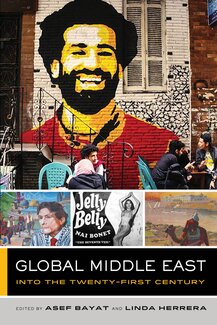
Academies and Schools of Art in Latin America
This edited volume’s chief aim is to bring together, in an English-language source, the principal histories and narratives of some of the most significant academies and national schools of art in South America, Mexico, and the Caribbean, from the late 18th to the early 20th centuries.
The book highlights not only issues shared by Latin American academies of art but also those that differentiate them from their European counterparts. Authors examine issues including statutes, the influence of workshops and guilds, the importance of patronage, discourses of race and ethnicity in visual pedagogy, and European models versus the quest for national schools. It also offers first-time English translations of many foundational documents from several significant academies and schools.
This book will be of interest to scholars in art history, Latin American and Hispanic studies, and modern visual cultures.
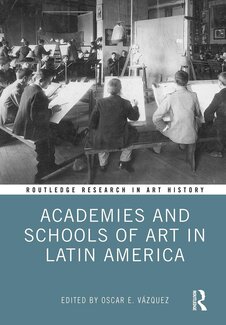
The Archaeology of Craft and Industry
In this expansive yet concise survey, Christopher Fennell discusses archaeological research from sites across the United States that once manufactured, harvested, or processed commodities. Through studies of craft enterprise and the Industrial Revolution, this book uncovers key insights into American history from the seventeenth through the nineteenth centuries.
Exploring evidence from textile mills, glassworks, cutlery manufacturers, and tanneries, Fennell describes the complicated transition from skilled manual work to mechanized production methods, and he offers examples of how artisanal skill remained important in many factory contexts.
Fennell also traces the distribution and transportation of goods along canals and railroads. He delves into sites of extraction, such as lumber mills, copper mines, and coal fields, and reviews diverse methods for smelting and shaping iron. The book features an in-depth case study of Edgefield, South Carolina, a town that pioneered the production of alkaline-glazed stoneware pottery. Fennell outlines shifts within the field of industrial archaeology over the past century that have culminated in the recognition that these locations of remarkable energy, tumult, and creativity represent the lives and ingenuity of many people. In addition, he points to ways the field can help inform sustainable strategies for industrial enterprises in the present day.

Histories of a Radical Book: E. P. Thompson and The Making of the English Working Class
For better or worse, E.P. Thompson’s monumental book The Making of the English Working Class has played an essential role in shaping the intellectual lives of generations of readers since its original publication in 1963. This collected volume explores the complex impact of Thompson’s book, both as an intellectual project and material object, relating it to the social and cultural history of the book form itself—an enduring artifact of English history.

Animalia: An Anti-Imperial Bestiary for Our Times
From yaks and vultures to whales and platypuses, animals have played central roles in the history of British imperial control. The contributors to Animalia analyze twenty-six animals—domestic, feral, predatory, and mythical—whose relationship to imperial authorities and settler colonists reveals how the presumed racial supremacy of Europeans underwrote the history of Western imperialism. Victorian imperial authorities, adventurers, and colonists used animals as companions, military transportation, agricultural laborers, food sources, and status symbols. They also overhunted and destroyed ecosystems, laying the groundwork for what has come to be known as climate change. At the same time, animals such as lions, tigers, and mosquitoes interfered in the empire's racial, gendered, and political aspirations by challenging the imperial project’s sense of inevitability. Unconventional and innovative in form and approach, Animalia invites new ways to consider the consequences of imperial power by demonstrating how the politics of empire—in its racial, gendered, and sexualized forms—played out in multispecies relations across jurisdictions under British imperial control.

World Politics, Human Rights, and International Law
World Politics, Human Rights, and International Law examines the functional dynamics between these concepts based upon the author's professional experiences dealing with real world situations, problems, and crises: from the Bush, Obama, and Trump administrations; Iraq, Iran, Palestine, Israel, and Syria; Bosnia and Herzegovina; successfully litigating genocide at the World Court; indicting Slobodan Milosevic at the International Criminal Tribunal for the Former Yugoslavia; prosecuting American torture and enforced disappearances at the International Criminal Court; opposing nuclear, chemical, and biological weapons; citizen civil resistance against state crimes; protecting Indigenous Peoples, etc. The reader can see how the author defined these predicaments from the perspective of international law and human rights, and then proceeded to grapple with them and to rectify them. This book demonstrates the power of international law and human rights to make a positive difference for international peace and justice as well as for the good of humanity in the real world of international power politics. By reading this book the citizen will be empowered and inspired to do the same.
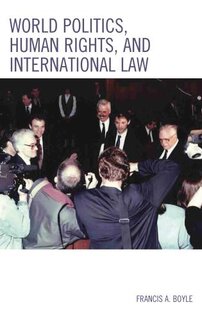
Disruptive Situations: Fractal Orientalism and Queer Strategies in Beirut
Disruptive Situations challenges representations of contemporary Beirut as an exceptional space for LGBTQ people by highlighting everyday life in a city where violence is the norm. Ghassan Moussawi, a Beirut native, seeks to uncover the underlying processes of what he calls “fractal orientalism,” a relational understanding of modernity and cosmopolitanism that illustrates how transnational discourses of national and sexual exceptionalism operate on multiple scales in the Arab world.
Moussawi’s intrepid ethnography features the voices of women, gay men, and genderqueer persons in Beirut to examine how queer individuals negotiate life in this uncertain region. He examines “ al-wad’,” or “the situation,” to understand the practices that form these strategies and to raise questions about queer-friendly spaces in and beyond Beirut.
Disruptive Situations also shows how LGBTQ Beirutis resist reconciliation narratives and position their identities and visibility at different times as ways of simultaneously managing their multiple positionalities and al-wad’. Moussawi argues that the daily survival strategies in Beirut are queer—and not only enacted by LGBTQ people—since Beirutis are living amidst an already queer situation of ongoing precarity.
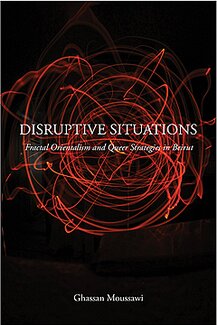
Poems Against the Empire
Poetry stands against any empire! The pen is always mightier than the sword! The author has spent the past five decades learning, lecturing, writing, and lawyering against the American Empire as well as against foreign empires. Set forth in this book are his poetic reflections on these experiences fighting for peace, justice, human rights and international law. The author’s hope is that these poems might inspire the reader to do the same. You can do it too!
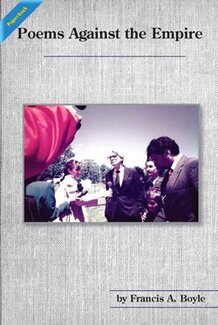
The Global 1960s: Convention, Contest and Counterculture
The Global 1960s presents compelling narratives from around the world in order to de-center the roles played by the United States and Europe in both scholarship on, and popular memories of, the sixties.Geographically and chronologically broad, this volume scrutinizes the concept of "the sixties" as defined in both Western and non-Western contexts. It provides scope for a set of analyses that together span the late 1950s to the early 1970s. Written by a diverse and international group of contributors, chapters address topics ranging from the socialist scramble for Africa, to the Naxalite movement in West Bengal, the Troubles in Northern Ireland, global media coverage of Israel, Cold War politics in Hong Kong cinema, sexual revolution in France, and cultural imperialism in Latin America.The Global 1960s explores the contest between convention and counter-culture that shaped this iconic decade, emphasizing that while the sixties are well-known for liberation, activism, and protest against the establishment, traditional hierarchies and social norms remained remarkably entrenched. Multi-faceted and transnational in approach, this book is valuable reading for all students and scholars of twentieth-century global history.

100 English Building
608 South Wright Street
Urbana, Illinois 61801